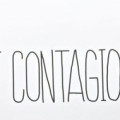
Recently, I was asked to participate in a radio panel discussion around the topic of suicide, including the way it’s discussed in society and addressed by the media. A recording of my segment is now available – listen here. I first want to thank the host and producers of “The Afternoon Shift” on WBEZ 91.5 Chicago, for taking an interest in the topic of suicide. It is truly refreshing to see the media addressing a topic that has been silenced for so long. It is my hope that we will continue to talk about suicide in order to fight the stigma surrounding the topic for survivors.
I was intrigued when asked about the role media might play in potentially contributing to the suicide rate. Specifically, does talking about suicide increase someone’s likelihood to attempt or complete it? As a clinician and a survivor my response is, “NO!” We need to talk about suicide. It needs to be addressed in the media, primarily to elevate the discussion so that both those at risk and those who have lost a loved one can get better support. As a survivor, wouldn’t it be nice to openly talk about the death of your loved one without fear of judgment because of the unfortunate stigma? And, on the opposite end, I can’t help but wonder how different my father might have felt if he was able to verbalize his thoughts without fear of being judged or characterized as “crazy” or “weak.” As a society, we continue to silence suicide and mental illness; I want to give it a voice. Why? Well, clearly silence isn’t working as research shows that suicide has become the leading cause of death in the developed world. In fact, according to the Institute for Health Metrics and Evaluation, self-harm is now the leading cause of death for people 15 to 49, surpassing all cancers and heart disease. Additionally, in 2010, self-harm took more lives than murder, war and natural disasters combined. Even more worrisome, the rates continue to increase year after year. If there is anything to take from all of the research out there, it’s that what we are doing right now isn’t working. Suicide is not an easy topic to discuss and can be very uncomfortable for a survivor. If your experience is anything like mine, I always felt that I needed to defend my father’s character after I explained that he took his life. Top that off with the weight of judgment, and it was almost too much to take. No wonder survivors often tell a different story in the aftermath of their loved one’s death. So where do we go from here? How can we begin to feel more comfortable talking about suicide?
For one, I hope this blog gives you a place to share your story – whether you want to comment on a post that might match how you are feeling, or you want to tell others your story, I hope you find a safe place on this page. I also would love to hear how you have dealt with the stigma of suicide. What do you all think we can do to help end the stigma surrounding suicide and give a voice to a topic that has been silenced for so long so that ultimately, all of us can get the support we need?




I am a survivor(?–if you want to call it that) of suicide. Unlike you, I did not lose my father or my mother to suicide; I lost my Dad to cancer and my Mom to a failed heart. Two years ago I lost my Dearest Of All Dear Boys to suicide, my son. I thought I loved my parents, I thought I loved my husband, I thought I loved my brothers, I thought I loved my dogs, but I didn’t really know what love was until I held my children. The pain of losing a child is beyond words. My son was brilliant, brave, vulnerable, so sweet, so gentle, so innocent, so kind, thoughtful and considerate. He never drank, smoked, did drugs. He graduated at the top of his high school and college classes. He was a cross between Peter Pan and E.T.–didn’t want to be an adult with all its responsibilities, and only “on loan” here on earth for a short period of time. I feel this suicide stigma that we, the ones left behind, experience would be lessened if, AS A START, everyone (and this is where the media would come in) would stop referring to it as “committed”. It isn’t a crime. My son, your fathers, did not commit a crime. They COMPLETED suicide. I read somewhere recently that “Depression and anxiety are not a sign of weakness. They are signs of having tried to remain strong for too long”. It would be only a very small step if people stopped using the word “committed”, but major changes begin with baby steps. Mental health is an enormous problem and a secret that people keep hidden, but it needs to be talked about out in the open. There are too many lost and desperate people in need of help that they simply can’t get and/or can’t afford.
I have only just, through an article about you in our Sunday newspaper, found your blog. I know your site is for children who have lost Dads and I am not in that grouping, so I apologize if I’m “chiming in” where I don’t belong, but suicide is so heartbreaking and strikes so close to my own life that I felt I wanted to write. It’s great that you daughters have come together and joined forces like you have to help other children who have lost their Dads. Nicely done, girls!
Hi Conny – Thank you for visiting the blog and for sharing your experience with us. This blog was actually intended to be a place for support and conversation for ALL survivors. It just so happens that the three of us lost our dads. We hope that you do find comfort and relevance in our topics. We also welcome any guest posters under our “Voices of Other Survivors” category, some of whom have lost someone other than a parent. We are so sorry that you lost your son this way.
What you said is exactly right – and it’s a topic we’ve discussed in our support group meetings. “Committed” does carry with it an almost criminal-like connotation. It also contributes to the stigma. We often use “completed” when sharing our loved one’s stories. It’s such a shame that the media is so slow to catch on not only to this topic and helping to prevent it, but also in more up-to-date terminology.
Hi, Becky,
It’s true: “committed” should be banned from speech when speaking of suicide. I have found a local group of moms who, like you guys, meet once a month for soup/sandwiches. The moms are not all suicide moms, but everyone is a grieving mom. Whether I contribute to their conversation or not (I generally try to “hide” in the background), it’s just nice being in a room with other moms who know and understand what it feels like to lose a child. Everyone agrees, though: “committed suicide” is an inappropriate term. It just makes us want to hide further back into the depths of our respective closets. “Completed” would be such a kinder, gentler term. I know that I, personally, would feel more comfortable if people used “completed”–I’d feel much less like they were being judgmental. Losing someone is hard, losing someone to suicide is harder, and having others judge your loved one for his/her final desperate act is just “piling on”.
I am so sorry for your loss of your Dad. I know how hard it was to lose my parents through health causes, but I can’t imagine how hard it must have been to lose a parent to suicide. My thoughts and prayers are with you.
conny